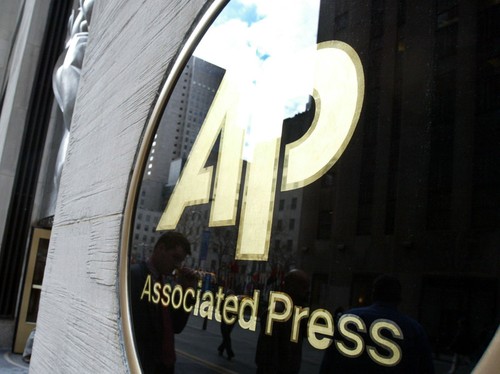 AP is one of US media outlets being asked to submit information about their operations to the local Chinese authority. (photo: AP) AP is one of US media outlets being asked to submit information about their operations to the local Chinese authority. (photo: AP) |
The retaliation against the US’s restrictions on Chinese media agencies last month marks an escalation between the two countries.
At a press conference in Beijing early this month, Chinese Foreign Ministry spokesman Zhao Lijian said his government had asked the Associated Press, CBS, National Public Radio, and United Press International to submit information about their personnel, finances, and assets in China in writing within seven days. He said the decision is in retaliation against the US’s pressure on Chinese media agencies. On June 22, the US Department of State designated the US operations of China Central Television, China News Service, the People’s Daily, and the Global Times as foreign missions, rather than media liaisons.
A war of media outlets
Tension over the media began on February 18 when the US listed 5 Chinese media agencies including Xinhua, the China Daily, the China Global Television network, the People’s Daily, and the China Radio International as “foreign missions”. On March 13 the US asked the 5 media agencies to reduce the number of journalists from 160 to 100 people. In May the United States tightened visa rules for Chinese journalists.
In retaliation, China on March 18 expelled 13 American journalists of the New York Times, Washington Post, and Wall Street Journal. They, along with Time magazine and Voice of America, must declare information about staff, finances, and assets. China has also imposed stricter rules on American journalists concerning visas, administrative procedures, and journalistic activities allowed.
Confrontation in other fields
China and the US have confronted each other in many fields. Last year they began a fierce trade war, which temporarily subsided when they signed a phase 1 trade agreement early this year.
The Covid-19 pandemic ignited disagreement between Beijing and Washington with tit-for-tat accusations about the origin of the SARS-CoV-2 virus, travel bans, and China’s pandemic response. US President Donald Trump repeatedly accused China of under-reporting the scale of the outbreak, and an allegation China denied.
The US has placed additional restrictions on Chinese technology companies, including limiting Chinese technology giant Huawei's access to semiconductor technology. The US Federal Communications Commission on June 30 blocked Huawei and ZTE from billions of dollars in federal broadband subsidies.
After China adopted the National Security Law for Hong Kong, which took effect on June 30, the US immediately canceled Hong Kong’s special status starting July 1. The US will limit students from China, and set special rules for Hong Kong on customs and other sectors.
China, in turn, asked public companies to stop buying US commodities under the phase 1 trade deal.
Confrontations between China and the US in trade, high tech, security, and Covid-19 response reflect a fierce global competition for which there is no end in sight.